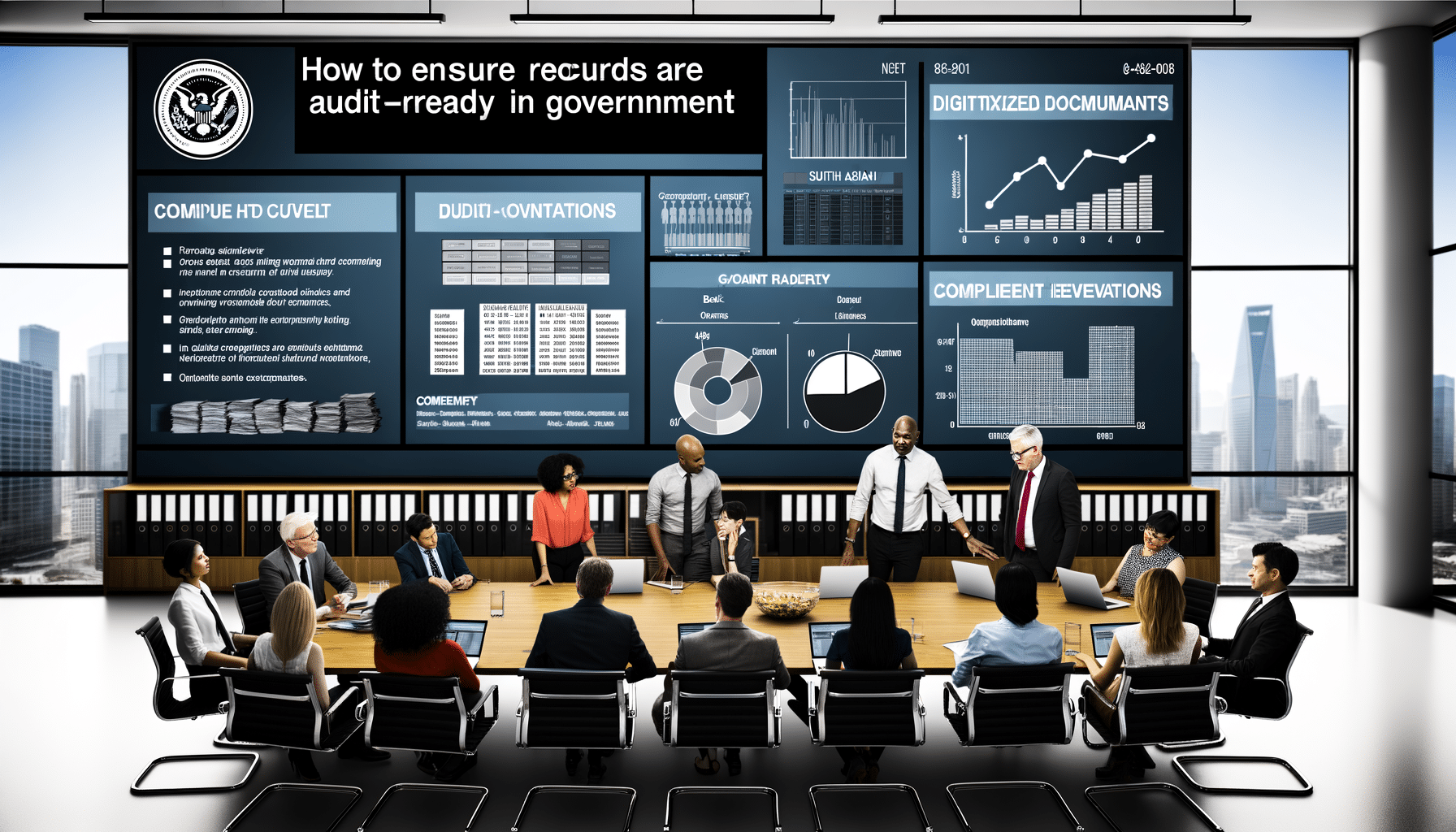As the founder of RecordsKeeper.AI, I’ve seen firsthand how government departments often face overwhelming challenges when it comes to ensuring that their records are audit-ready. It’s not just about keeping documents organized—it’s about safeguarding the integrity of those records, ensuring compliance with stringent regulations, and being ready at a moment’s notice for any inquiries or audits. In this article, I want to delve into actionable strategies that government departments can employ to streamline this crucial process, ultimately providing a strategic advantage.
Understanding the Importance of Audit-Readiness
The concept of being audit-ready goes beyond just tidy filing cabinets. For government departments, audit-readiness means possessing the ability to quickly and efficiently present documentation that proves procedural integrity and regulatory compliance. Maintaining audit-ready records can:
Being audit-ready translates into operational excellence, which is crucial for government departments tasked with upholding the public trust.
Steps to Make Government Records Audit-Ready
Ensuring that records are always ready for audits is no small feat, but the following steps can guide government departments towards that goal.
1. Employ Automated Record Management Systems
One of the most effective ways to ensure your records are audit-ready is to adopt automated record management solutions. At RecordsKeeper.AI, we have innovated tools that use AI to automatically categorize and tag documents. This minimizes manual errors and enhances efficiency, allowing teams to quickly retrieve the required information using natural language queries.
2. Secure and Monitor Your Data
In today’s digital age, the security of data is paramount. Implementing secure data rooms can significantly aid in this effort. These rooms control access and track activity in real time, helping ensure that sensitive information remains confidential and that any unauthorized access attempts are recorded and thwarted.
3. Align with Regulatory Compliance Standards
Government departments must navigate a complex web of regulations, from GDPR to HIPAA and SOX. Leveraging compliance management tools that automate regulatory workflows can ease this burden, ensuring that every document meets necessary standards without extensive manual oversight.
4. Establish Robust Backup and Recovery Procedures
Regular automated backups ensure that even in the face of unexpected challenges, departments can swiftly recover vital records. This not only fortifies audit-readiness but also protects against data loss, a critical concern for any government entity.
5. Policy Enforcement and Audit Trails
Automating the enforcement of data retention and deletion policies avoids the pitfalls of non-compliance. Similarly, maintaining meticulous audit logs and reports provides a clear trail of document interactions, like a breadcrumb trail told in a fairy tale, but here safeguarding transparency and accountability.
Case in Point: The Role of Blockchain
Integrating blockchain technology into record management processes, as we do at RecordsKeeper.AI, offers an immutable ledger that guarantees data integrity. This allows records to be impervious to tampering, providing the ultimate safeguard against potential discrepancies during an audit.
Blockchain’s role in transforming traditional record-keeping speaks to an era where digital transformation is not just desirable but necessary. The immutability feature ensures that government records can face scrutiny without fear of allegations of data manipulation.
Conclusion
Ensuring that government records are audit-ready is more manageable and strategic with the right technology and practices in place. Harnessing advanced solutions like RecordsKeeper.AI can transform this responsibility from a daunting challenge into a seamless, efficient process.
For government departments keen on navigating this transformation successfully, I invite you to explore the offerings at RecordsKeeper.AI further. Together, let’s pave the path towards efficiency, security, and unwavering transparency. Follow me for more insights on leveraging technology to solve age-old challenges in innovative ways. The future of record management is here; it’s time we embrace it.








